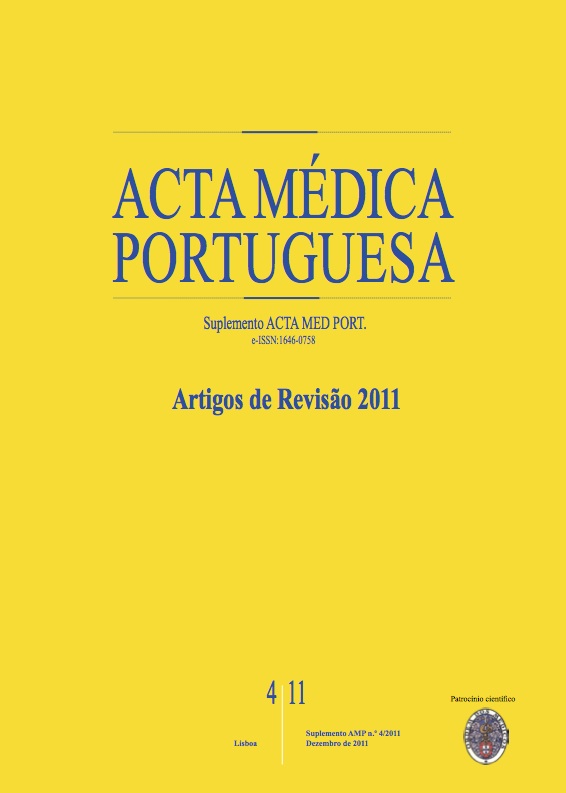Aleitamento materno: a importância de intervir.
DOI:
https://doi.org/10.20344/amp.1581Resumo
Breast milk is considered by the WHO the ideal food for the first months of life. Although health professionals are aware of recommendations, high rates of drop-outs have been identified in Portugal. A false notion of hypogalactia is the major factor for early termination, which is allied to the technical difficulties of the feeding. Health professionals, often lacking training in the area, may have difficulty in reassuring mothers in these situations. In Portugal, at the 3rd month, most mothers stop breastfeeding by indication of their medical assistant.Gather evidence about the advantages of breast-feeding compared to artificial milk, and establish useful strategies in clinical practice to avoid early withdrawal.A survey was conducted for articles from the last six years in the major sites of evidence-based medicine and reference sites (Pubmed, Cochrane, National Guideline Clearinghouse, Tripdatabase, WHO).Breast-feeding is clearly associated with benefits to the infant, including significant protective effects for gastrointestinal infections (64%), middle ear (23- 50%), severe respiratory infections (73%) and for acute lymphocytic leukemia (19%) and sudden death syndrome in infants (36%). We also found long-term benefits, such as for obesity (7-24%) and other cardiovascular risk factors in adulthood. The mother also benefits from its protective effect for cancers of the breast and ovary, and diabetes mellitus type 2 as also, proportionate to the duration of breastfeeding. Health professionals have an important role in the initiation and continuation of breastfeeding. The notion of its advantages, the communication prior to delivery, accessibility support and training in technical aspects of correct picks are the proven strategies for evidence explored in the article. Discussion: Breast milk contains several unique and exclusive elements, orchestrators of its health benefits. Postnatal period is critical to the development of neuro--hypothalamic circuits involved in appetite control--nutritional programming--in which leptin, present in breast milk, appears to have a decisive role.Despite scientific advances, breast milk continues to demonstrate clear advantages for human health in the short and long term. Proper feeding technique is not often achieved by the dyad mother-infant alone, warning for a greater involvement of health professionals. It is urgent to continue to insist on training for the improvement of the indices relating to this area in Portugal.Downloads
Downloads
Como Citar
Edição
Secção
Licença
Todos os artigos publicados na AMP são de acesso aberto e cumprem os requisitos das agências de financiamento ou instituições académicas. Relativamente à utilização por terceiros a AMP rege-se pelos termos da licença Creative Commons ‘Atribuição – Uso Não-Comercial – (CC-BY-NC)’.
É da responsabilidade do autor obter permissão para reproduzir figuras, tabelas, etc., de outras publicações. Após a aceitação de um artigo, os autores serão convidados a preencher uma “Declaração de Responsabilidade Autoral e Partilha de Direitos de Autor “(http://www.actamedicaportuguesa.com/info/AMP-NormasPublicacao.pdf) e a “Declaração de Potenciais Conflitos de Interesse” (http://www.icmje.org/conflicts-of-interest) do ICMJE. Será enviado um e-mail ao autor correspondente, confirmando a receção do manuscrito.
Após a publicação, os autores ficam autorizados a disponibilizar os seus artigos em repositórios das suas instituições de origem, desde que mencionem sempre onde foram publicados e de acordo com a licença Creative Commons









